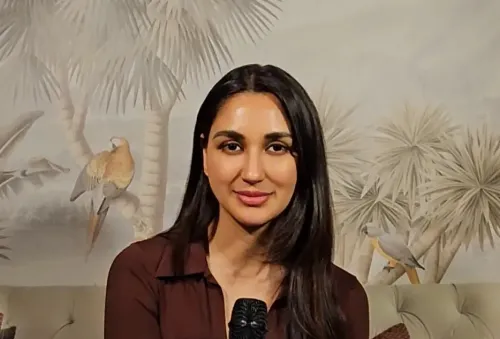Waqf Amendment Bill: Inclusion of Muslim Women in Board Membership

Synopsis
Key Takeaways
- Two Muslim women will be on State Waqf Boards and Central Waqf Council.
- Inclusion of a member from the Muslim OBC community.
- Separate Waqf Boards for Aghakhani and Bohra communities may be established.
- Women’s inheritance rights in family waqfs are protected.
- Online registration for waqf properties will be implemented.
New Delhi, Jan 28 (NationPress) The Central government has taken significant steps to empower Muslim women by incorporating them as members of the Waqf boards.
Key highlights of the Waqf Amendment Bill, 2025 include the inclusion of two Muslim women as members in both the State Waqf Boards (Section 14) and the Central Waqf Council (Section 9), aimed at enhancing Muslim women’s participation in waqf management.
Additionally, one member from the Muslim OBC community will now be included in the State Waqf Boards, which promotes broader representation (Section 14).
The bill also states that state governments may create separate Waqf Boards for the Aghakhani and Bohra communities, recognizing their unique religious requirements (Section 13).
Furthermore, women’s inheritance rights in Waqf Alal Aulad (family waqfs) will be protected. “A waqif can dedicate property only after ensuring female heirs receive their rightful share” (Section 3A(2)), it notes.
Another important addition is that a registered Waqf by User will remain recognized as waqf, except where the property is contested or owned by the government (Section 3(r)).
The Limitation Act will now be applicable to all waqf-related matters from the start of this Act, ensuring prompt resolutions and preventing lengthy litigation (Section 107).
Moreover, an online registration process will be implemented to automate the complete lifecycle of waqf properties via a dedicated portal.
“Waqf Boards are required to upload all waqf property details onto a central portal within six months. The Waqf Tribunal may grant extensions on a case-by-case basis,” reports indicate.
If a government property is claimed as waqf, an officer above the rank of Collector, as notified by the state government, will carry out an inquiry as per the law. Until this report is finalized, such government properties will not be recognized as waqf (Section 3C).
It also clarifies that Muslim trusts operating similarly to waqf but governed by trust laws will be exempt from the Waqf Act, 1995, to avoid legal discrepancies (Section 2A).
Consequently, the income generated from Waqf Alal Aulad can be utilized to assist widows, divorced women, and orphans, if specified by the waqif (Section 3(r)(iv)).
“The finality of tribunal decisions has been lifted. Any aggrieved individual can now appeal to the High Court within ninety days of the tribunal’s ruling,” according to available information.
To further simplify the process, online registration certificates for waqf properties will be provided through the portal.









